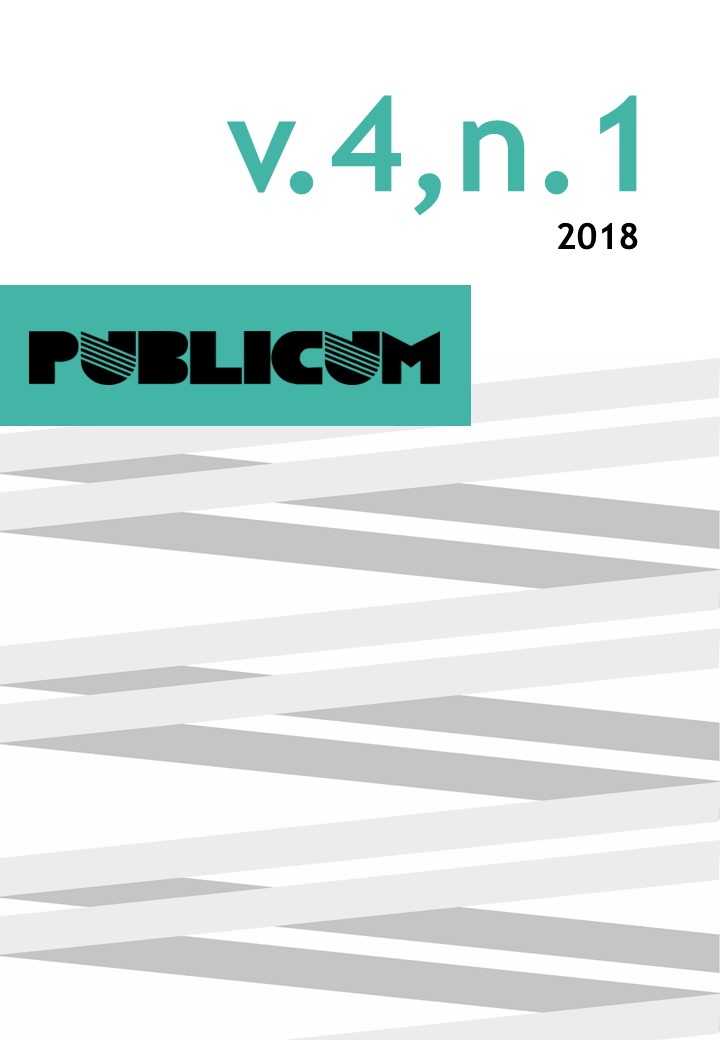Alternatives to the State Action Doctrine in the Era of Privatization, Mandatory Arbitration, and the Internet: Directing Law to Serve Human Needs
DOI:
https://doi.org/10.12957/publicum.2018.35530Keywords:
teoria da ação estatal, privatização, arbitragem, state action doctrine, Mandatory Arbitration, privatizationAbstract
In U.S. constitutional law, the state action doctrine — attaching the protections of individual rights to government action — is notoriously confusing, if not incoherent. Though the doctrine is already known for its “lack of clarity,[1]” commentators compete in rhetorical flourishes, describing the doctrine “a collection of arbitrary rules,[2]” “a conceptual disaster area,[3]” and, my personal favorite, “a torchless search for a way out of a damp echoing cave.[4]” Yet, satisfying the “state action” requirement is a precondition for judicial enforcement of individual rights. This very fact is sadly a key reason for the doctrine’s incoherence. It is the threshold question —the door — into the room of rights; all the pressures and desires to apply and to resist rights tear it from its hinges. Thus, while the basic inquiry over whether the challenged action took place under the auspices of government seems intuitive, the case law over time has created a patchwork quilt of tests and precedents defining who counts as a government actor, when nongovernmental actors may nonetheless be treated as acting with governmental authority, and when a given action involves sufficient indications of governmental authority to give rise to the constitutional limitations that ensure accountability for public values[5].
[1] Emily Chiang, No State Actor Left Behind: Rethinking Section 1983 Liability in the Context of Disciplinary Alternative Schools and Beyond, 60 BUFF. L. REV. 615, 643 (2012).
[2] Wilson R. Huhn, The State Action Doctrine and the Principle of Democratic Choice, 34 HOFSTRA L. REV. 1379, 1380 (2006).
[3] Charles. L. Black, Jr., Foreword: “State Action,” Equal Protection, and California’s Proposition 14, 81 HARV. L. REV. 69, 95 (1967).
[4] Charles. L. Black, Jr., Foreword: “State Action,” Equal Protection, and California’s Proposition 14, 81 HARV. L. REV. 69, 95 (1967).
[5] See infra Section I
Downloads
Published
How to Cite
Issue
Section
License
The author(s) of the paper declare(s) to know and agree to the following rules:
1) The author(s) undertook the work presented to the journal, being entirely responsible for the ideas and concepts therein transmitted, which do not necessarily correspond to the point of view of Publicum’s Editors.
2) The ethical principles alluded to in the evaluation policy of the journal [RDN1] were met in the conduction of the work presented to submission.
3) The author(s) assume(s) authorship and responsibility for their work, declaring that it does not infringe any third party intellectual property rights.
4) The author(s) take(s) full responsibility for moral or patrimonial damages that the distribution of the work may generate to third parties.
5) The author(s) grant(s) the journal the rights to reproduce, edit and first publish the paper in any media – in particular in digital form – in an electronic archive on the Internet.
6) The author(s) confer(s) the right to the editors to modify the text submitted, without prejudice of its contents, when necessary to standardize the presentation of the works and to meet the norms of the journals’ own edition.
7) The author(s) agree(s) to the final form of the paper approved by the journal.
8) The author(s) authorize(s) the disclosure of the paper in the channels of communication of the Faculty of Law of UERJ.
9) The author(s) agree(s) with the reproduction of short extracts from the paper in other UERJ publications.
10) The author(s) recognize(s) that, through the abovementioned assignment and authorizations, he/she/they will not receive payment under any modality, meaning these will have the nature of scientific collaboration.
11) The author(s) is(are) aware that publication of the work may be refused if it is not considered appropriate, for any reason, whatsoever, and such refusal does not create responsibility and/or burdens of any kind to the journal or UERJ.
[RDN1]Ver COPE.

Publicum está licenciado com uma Licença Creative Commons Atribuição-NãoComercial 4.0 Internacional.

